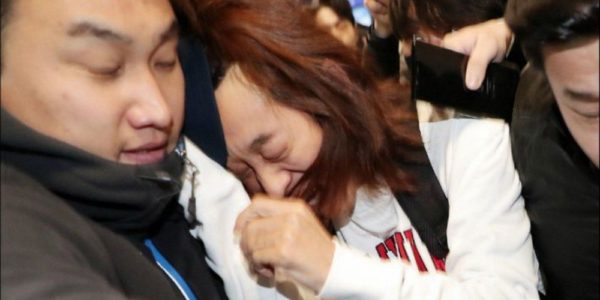Jung Joon Young and molka have become synonymous in 2019, but it’s a case from 2016 that has gained attention recently. Back in March of this year it was reported that police corruption may have been why he was cleared in his molka case three years prior. Now it’s been reported that Jung Joon Young’s lawyer and a police officer were charged with hiding evidence related to the case.
On June 13, the Seoul Metropolitan Police Agency’s Cyber Crime Division revealed that they forwarded Seoul Seongdong Police Station’s Lieutenant A to the prosecution with a recommendation for indictment on suspicions of abandonment of duties as well as preparing and uttering false documents. Jung Joon Young’s lawyer, B, was also forwarded to the prosecution on suspicions of being an accomplice in abandonment of duties and hiding evidence.
The police officer is suspected of essentially not doing their job and the lawyer is suspected of working with the officer to hide evidence.
Lieutenant A is under the suspicion of not confiscating Jung Joon Young’s cellphone when he was accused by his ex-girlfriend in August 2016. The lieutenant forwarded Jung Joon Young to the prosecution with a recommendation for indictment without having evidence of the crime, which led the investigation to be carried out without verifying whether or not Jung Joon Young had shared his illegally taken footage. Lawyer B is suspected of scheming with Lieutenant A to hide Jung Joon Young’s cellphone in his office and falsely report to the police, “Jung Joon Young’s cellphone has disappeared, so the data cannot be restored.” According to the investigation, Lieutenant A first suggested to Lawyer B, “Instead of saying we left the phone with a digital forensics company, let’s make things easier and say the cellphone was lost.” This happened on August 20, 2016 when Jung Joon Young was investigated by the police as a suspect.
This matches with the previous reports regarding the handling of the case by a police officer and Jung Joon Young’s lawyer.
When the chief of the Women’s and Juvenile Affairs Division ordered Lieutenant A to confiscate Jung Joon Young’s phone and secure the evidence, the lieutenant asked a digital forensics company to write a confirmation letter stating that the data cannot be recovered, but the company rejected his request. In addition, the digital forensics company’s form for data recovery requests originally stated, “Cellphone will be ready to take in one through four hours, data is recovered within 24 hours on average,” but Lieutenant A included the document in the investigation files after covering up the aforementioned text. He then told his superiors, “They say it will take two to three months to recover [the data]. When the recovery is complete, I will receive [the data] and send it over.”
Almost amusingly at this point, police are now essentially saying that the officer’s motivation in working with the lawyer to cover this up was basically laziness.
A source from the police shared, “Sexual assault cases usually take three to four months to resolve, but [this case] took only 17 days to be forwarded to the prosecution. They did not look into the possibility of the footage being spread, which is what the victim is afraid of, and if the phone had been confiscated at the time, the rest of the hidden camera suspicions would have also been investigated.” However, the police were not able to clearly figure out the reason why Lieutenant A suggested hiding the evidence to Lawyer B. A source from the police stated, “We did not discover any corrupt ties like bribery, and he said he wanted to ‘quickly wrap up the case.’”
Regardless of the reason, obviously it’s difficult to have trust in the effectiveness of police when stories like this come out and always years later.
Not only do police appear incompetent, but worse yet, they appear to actively be working against victims. While it may be unfair to make that generalization about police, one recent op-ed put it best, saying that it’s on police at this point to prove their competence to the public and not on the public to have blind faith in them.
 Asian Junkie Asian pop. Without discretion.
Asian Junkie Asian pop. Without discretion.
